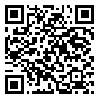Volume 10, Issue 19 (3-2022)
نظریه و عمل 2022, 10(19): 119-162 |
Back to browse issues page
Abstract: (1909 Views)
This study tries to formulate elements of practice -based curriculum in Iranian higher education from the perspective of education specialists with an interpretive approach. The research approach used is a qualitative methodology that has conducted semi-structured interviews with 21 academic actors. The data obtained from the interviews have been analyzed based on the research theory of the grounded theory in the form of three stages of open coding, axial coding and selective coding. The result was the determination of the elements of the practice-based curriculum model in seven elements: purpose, content, teaching-learning strategies, materials and resources, teaching-learning opportunities, learning environment conditions and evaluation. Each of these elements has components
Keywords: practice-based curriculum, Iranian higher education, education specialists, lived experience, grounded theory, educational sciences
Type of Study: Research |
Received: 2021/08/24 | Revised: 2022/10/30 | Accepted: 2022/03/30 | Published: 2022/09/27
Received: 2021/08/24 | Revised: 2022/10/30 | Accepted: 2022/03/30 | Published: 2022/09/27
| Rights and permissions | |
 |
This work is licensed under a Creative Commons Attribution-NonCommercial 4.0 International License. |


